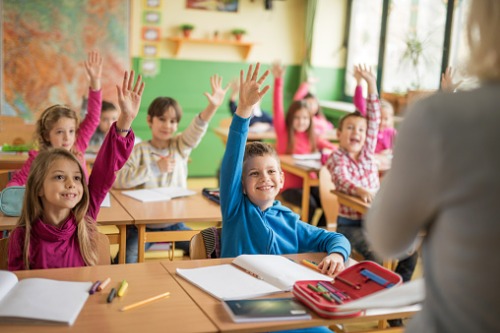
It can be said that a crisis, while disruptive and upsetting, can also be an important test our character. While this is certainly true on an individual level, a crisis can also be a catalysing event for an entire organisation, and during the COVID-19 pandemic, schools have certainly been no exception to this.
At St Clare's College in Waverley, NSW, staff are putting the disruption of the last 18 months behind them and forging ahead with a number of exciting programs that span all cohorts.
Initiatives include an integrated the Maths Pathway platform for Stage 4 and 5 students that allows each of them to move through the curriculum at their own pace and an iSTEM Stage 5 elective course, which provides students with the ability to build and code their own robot to simulate an autonomous vehicle, as well as design and build solar-powered cars.
In October, the College was recognised as one of Australia’s most innovative schools of 2021, but it will not be resting on its laurels in 2022. With the possibility of further disruptions, the College is making sure its students are being equipped to thrive as they navigate a rapidly changing world.
A focus on purposeful innovation
The College’s principal, Kerrie McDiarmid, said educating students for the unknown is “an exciting and necessary challenge”.
“At a time where knowledge is exploding at an exponential rate, our aim is to give students the skills to apply their knowledge and understanding to ever-changing circumstances inside and outside the classroom,” McDiarmid told The Educator.
“At St Clare’s this means being innovative in our approach. Innovation is more than a word, it reflects an attitude and a commitment to being adaptive, flexible and responsive to students' needs. As a principal, I aim to ensure that purposeful innovation is our focus.”
McDiarmid said it is not about adopting any initiative that may come along but looking for innovation that reflects the school’s context and supports its overall vision and drives success.
“Innovation is a mindset and as such fosters an environment of excitement and energy that positions life-long learning at the heart of the education experience.”
‘An opportunity to reimagine learning’
McDiarmid said the COVID-19 pandemic has meant that young people have been challenged and confronted by both the disruption and opportunities of social change and technological advancement.
“As a College, we are looking to 2022 as an opportunity to reimagine learning in a secondary school context and to provide opportunities for students to engage in experiences that prepare them for all the transitional moments in their educational journey,” she said.
McDiarmid said to this end, the College has aligned the skills, creativity and capabilities of its students and staff to partnerships with a network of leading industry, community and tertiary institutions.
“A focus on micro-credentialing, portfolio-based assessment and the creation of learning spaces that reflect the nexus between industry, the world of work and school will be key initiatives for the coming year.


